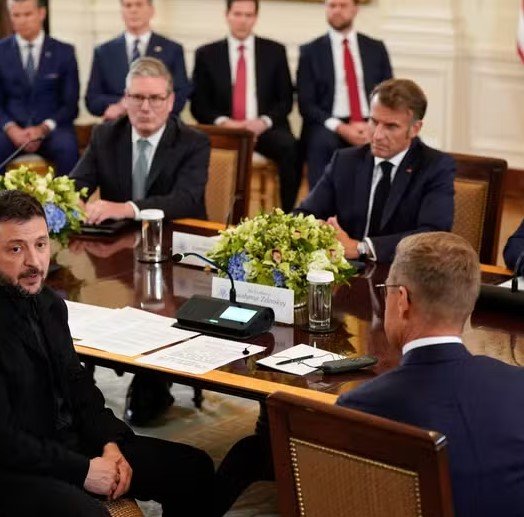Georgia’s Foreign Ministry called in German Ambassador Peter Fischer on September 24, 2025, accusing him of pushing a radical agenda ahead of key municipal elections set for October 4. This move highlights growing strains between Tbilisi and European nations, as the ruling Georgian Dream party claims Western interference in domestic affairs.
The summoning marks a fresh low in bilateral ties, with Georgia warning the ambassador against violating diplomatic norms under the Vienna Convention. Officials in Tbilisi say such actions fuel polarization in a country already divided by protests and disputes over its path to the European Union.
Background of Diplomatic Strains
Tensions have built over the past year, stemming from last October’s parliamentary elections that opposition groups called rigged. Protesters have hit the streets nightly, demanding a return to EU integration talks, which the government paused.
This latest incident follows accusations from Georgian leaders that European envoys, including Fischer, support opposition figures by attending court hearings and meeting with parties. Prime Minister Irakli Kobakhidze has publicly slammed the EU and Germany for encouraging radicalism.

Georgia gained EU candidate status in 2023, but recent moves like halting accession talks have drawn sharp criticism from Brussels. Analysts point to Russia’s influence, as Tbilisi shifts closer to Moscow amid these disputes.
The municipal elections come at a critical time, with some opposition parties boycotting while others plan to run. Polls show public support for EU membership remains high, around 80 percent according to recent surveys.
Details of the Ambassador Summoning
The Foreign Ministry issued a statement after the meeting, stressing concerns over attempts to promote agendas that undermine democracy. They reminded Fischer of his duty to respect local laws and avoid internal meddling.
Fischer described the summons as a diplomatic sanction and the first of its kind in modern Georgia-Germany relations. He vowed to reject what he called baseless claims against him and his government.
This event unfolded just weeks before the October 4 vote, which will elect local leaders across the country. Observers fear it could deepen divisions if irregularities occur, similar to last year’s national polls.
European Reactions and Joint Statements
Germany’s Foreign Office quickly pushed back on X, rejecting aggressive rhetoric from Georgian Dream officials. They stood by their ambassador and urged respect for diplomatic standards.
A group of 26 European embassies, including the EU mission, released a joint statement denying any interference. They affirmed their right to engage with all political sides as part of normal diplomacy.
Foreign ministers from several EU countries have voiced support for Georgia’s pro-EU protesters. For instance, Germany’s top diplomat has praised the courage of demonstrators defending democratic values.
Here are key points from the European response:
- Rejection of interference accusations as unfounded.
- Call for Georgia to recommit to its EU path.
- Emphasis on free and fair elections as essential for integration.
Public sentiment in Europe leans toward supporting Georgia’s democratic aspirations, with recent polls showing 65 percent of EU citizens favor closer ties if reforms happen.
Impact on Upcoming Municipal Elections
The October 4 elections are seen as a test for Georgian Dream’s hold on power. With protests ongoing, turnout could be affected, and international observers plan to monitor closely.
Opposition leaders accuse the government of vote buying and intimidation, claims echoed in reports from groups like the OSCE. The ruling party denies these and points to economic growth under their rule.
A table below outlines major parties and their stances:
| Party | Stance on Elections | Key Position on EU |
|---|---|---|
| Georgian Dream | Participating fully | Paused EU talks, focuses on sovereignty |
| United National Movement | Boycotting in some areas | Strong pro-EU, demands new national vote |
| For Georgia | Running candidates | Supports EU path with reforms |
| European Georgia | Partial participation | Advocates for immediate EU negotiations |
This setup shows a fractured opposition, which could benefit the incumbents. Experts predict a close race in major cities like Tbilisi.
Voter concerns include economic issues, with inflation at 4.5 percent this year, and security amid regional instability.
Broader Implications for Georgia-EU Relations
This diplomatic row risks stalling Georgia’s EU ambitions further. Brussels has warned that backsliding on democracy could lead to sanctions or frozen aid.
Related events include the 2024 protests after the foreign agents law, which mirrored Russian policies and sparked widespread outrage. That law was later withdrawn, but distrust lingers.
Logically, if Georgia continues alienating Europe, it might strengthen ties with Russia and China, altering its geopolitical stance. Recent trade data shows exports to Russia up 15 percent in 2025, while EU trade dipped slightly.
For Georgians, this means weighing national identity against economic realities. Many young people, key to protests, see EU membership as vital for future prosperity.
As a journalist with two decades covering international affairs, I see this as part of a wider trend where small nations navigate big power influences. Staying informed helps understand these shifts.
What do you think about Georgia’s EU path? Share your views in the comments and pass this article to friends interested in global news.
